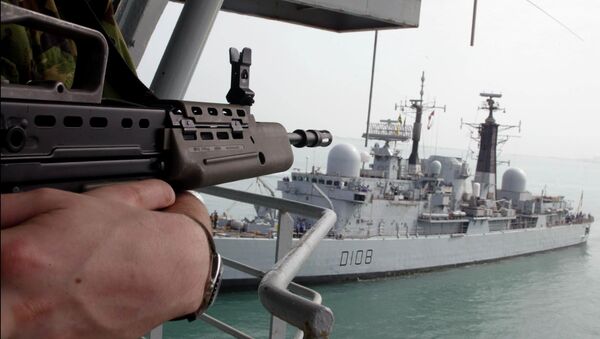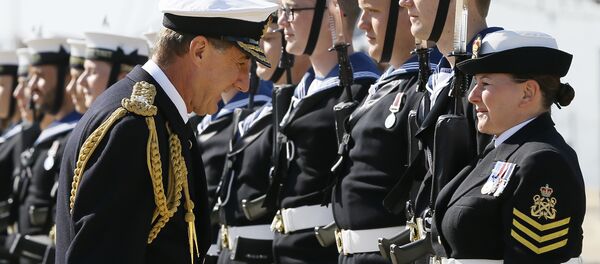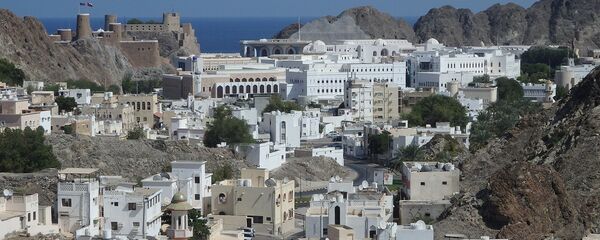Former naval chief Alan William John West has argued Britain's "invaluable" but "under fire" amphibious capability is vital for the country's "security and prosperity."
Writing in Politics Home, the former First Sea Lord said the UK urgently required "unimpeded maritime access and transit."
"As an island nation, the country needs a broadly maritime strategy — one [with] sea control at its core, which enables power and influence to be projected inland. All operations beyond our shores are expeditionary and demand theater entry, and strike carriers and amphibious forces are the enablers for this. The true fighting power of a navy is its ability to ensure entry around the world using carrier air and amphibious forces and to cause sea denial using carrier air and SSNs [nuclear powered submarines]."
Imperial Designs
West's comments highlighted the primary purpose of the UK military — to support economic and financial objectives, rather than defending the country. They echo comments occasionally uttered by UK leaders.
In a July 2016 speech to the City of London, current head of the Royal Navy, First Sea Lord Admiral Sir Philip Jones, pledged UK armed forces would "closely support the UK's own prosperity."
"At the height of Empire, the UK was the guardian of maritime trade. It was naval power that opened China and Japan to Western markets. Now, as the government looks to extend the UK's economic partnerships, as signified by the creation of a new Department for International Trade in the last two weeks, the Royal Navy's role in supporting prosperity rises to the fore once more," he said.
Similarly, in January 2017, then-Defense Secretary Michael Fallon called on UK diplomats to capitalize on the country's expanding overseas "security" network to deliver "prosperity" for Britain.
Whitehall and British state appear to be literally dreaming of empire in their return ‘East of Suez’ https://t.co/nOoTprk82c
— Mark Curtis (@markcurtis30) December 12, 2016
Historian Mark Curtis has suggested such statements point to renewed imperial ambitions on the part of the UK.
"Britain is set to increasingly promote a failed model of international trade that will impoverish developing countries still further. It will pursue an aid strategy that supports corporations, neo-liberal economic objectives and wider British foreign policy. Britain is even threatening to use its military power to secure financial and economic interests," he said.
Prosperity Isn't Cheap
However, serious questions hover over whether the UK's apparent objectives can be realized by way of the navy, given the severe cuts to the country's naval strength in recent years, and other spending reductions that are scheduled.
For instance, it was reported in October Brazil and Chile had been given notice of the "potential availability" of Royal Navy warships for purchase, including frigates amphibious ships, and two Albion class landing platform docks, due to cuts — and Ministry of Defence is reportedly examining scrapping HMS Bulwark and HMS Albion outright, and sacking a number of Royal Marines.
Prior to his unceremonious resignation, former Defense Secretary Michael Fallon repeatedly spoke of a "growing Royal Navy" and defense budget, which would mean "more ships, more planes, more armored vehicles and more cutting edge equipment" for the armed forces.
His pledges were directly contradicted by the July 2017 UK Armed Forces Equipment and Formations report, which offers official statistics on vessels, land equipment and aircraft available to the army.
"At April 1 2017 there were 73 vessels in the UK Armed Forces: 64 vessels in the Royal Navy and nine in the Royal Fleet Auxiliary (RFA). This is a reduction of three vessels since 2016 following the withdrawal of three RFA vessels: two Small Fleet Tankers and one Forward Repair Ship (RFA Diligence)," the report stated.
Furthermore, the Defense Select Committee has rated the UK's naval capabilities "woefully low" — and cuts would leave the country with fewer than 19 frigates and destroyers in total.
"The United Kingdom will then lack the maritime strength to deal with the threats we face right now, let alone in the future. We are putting the MoD on notice that it must not let this happen," the Committee concluded.




